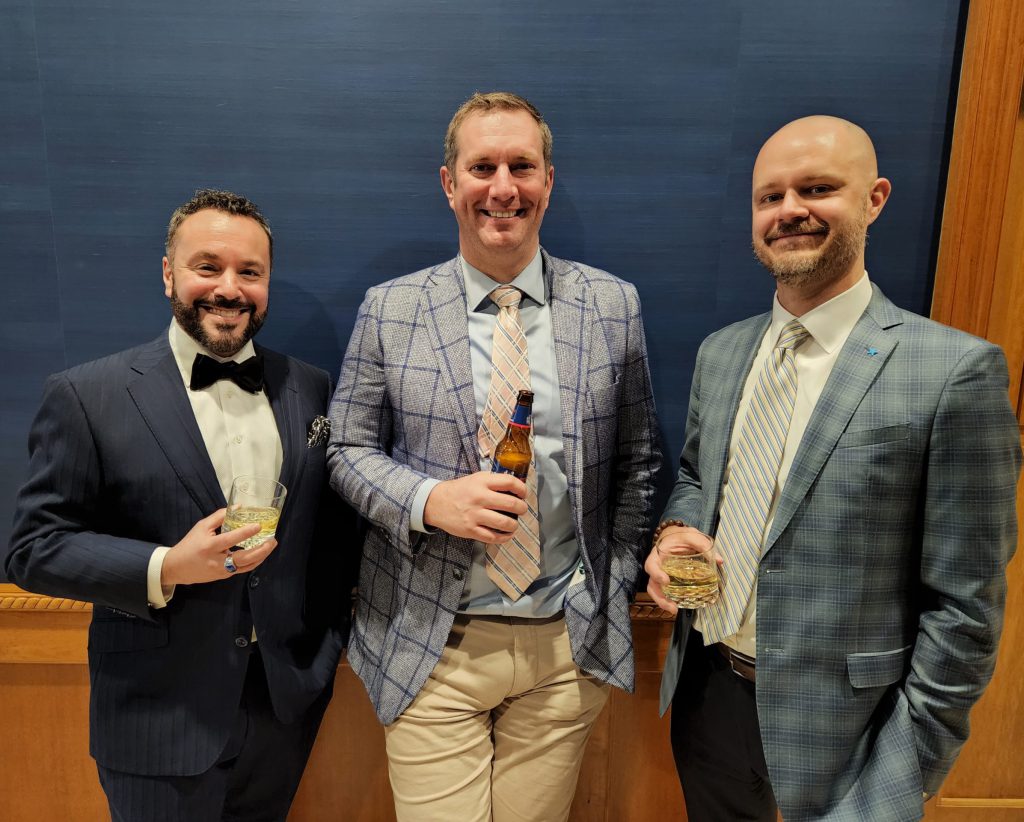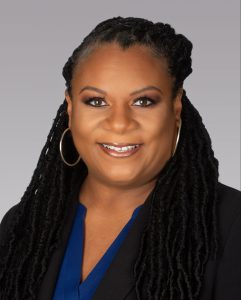By Adam Stone
Some are called to the sea. For Elizabeth Strunk, J.D. ’20, that has meant serving first as a sailor on ocean-going tugboats, and now as a lawyer in the maritime industry.

“I was in high school fiddling with the possibility of marine biology, but I knew that I would be looking at getting a master’s and maybe a doctorate before I could do anything with that kind of degree,” she says. “I just wanted to be out on the water.”
Seeking a more practical education, Strunk attended Massachusetts Maritime Academy, where she earned a B.S. in Marine Transportation. Then she sailed for five years as a deck officer aboard ocean-going tugboats and cargo ships.
Sometimes she’d help to tow decommissioned Navy vessels and submarines back to the yard. Other times she would help to hold the boat at anchor for weeks at a time, while Navy divers trained for deep-sea diving. It was good work, but eventually she wanted a change.
“There were a couple of years where I was out of the country for 10 months out of the year, which is great, but at some point you’ve missed enough birthdays,” she says. “Time kind of goes by, and you feel like having a little more of a balance.”
To that end, she returned to land and earned her J.D. cum laude in 2020 from UBalt Law, where she was editor-in-chief of the Law Review. Today she practices maritime law at Liskow law firm in Houston.
“Generally, maritime law is anything that involves a boat,” she says. That means litigating collisions and spills, for example, and also working with owners’ insurance programs. “On commercial vessels, everything is insured,” Strunk says. “The hull and the machinery have separate insurance, cargo will be insured separately. And then the vessel owners also carry protection and indemnity insurance.”
Most of that P&I coverage comes through mutual insurers, where members bond together to self-insure in groups or clubs. “In every major port, you need a local correspondent, and we do that for a couple of the 12 major clubs in the world,” she says. “If something goes wrong, we get a call.”
Strunk says there are some unique limitations to liability that make maritime law an especially interesting field.
A few years back, for example, the diving boat Conception caught fire and sank off the California coast; over 30 passengers died. “If it had been a bus or something on the road, they could have been liable for millions and millions of dollars,” says Strunk. But commercial owners can limit their liability to the value of the vessel itself at the end of the voyage.
“Technically, at the end of the voyage — once the vessel sank — it really wasn’t worth anything,” she says. That limitation doesn’t sit well with some people, but as Strunk points out, it helps protect the U.S. shipping industry from potential overexposure.
Strunk says her UBalt experience helps her to navigate these sometimes-tricky waters. “There are professors at the school who genuinely value your success, and your ambitions, and your dreams,” she said. “They’ll support you along and help you to get to where you want to go.”
Adam Stone is a writer based in Annapolis.












